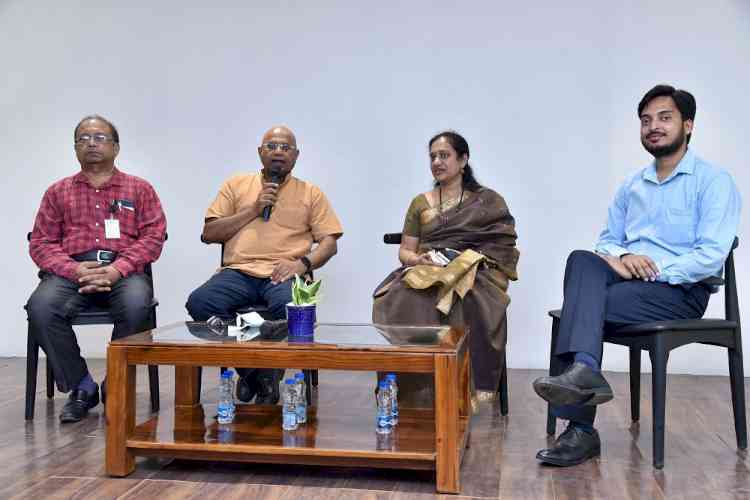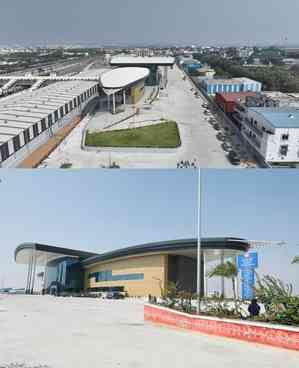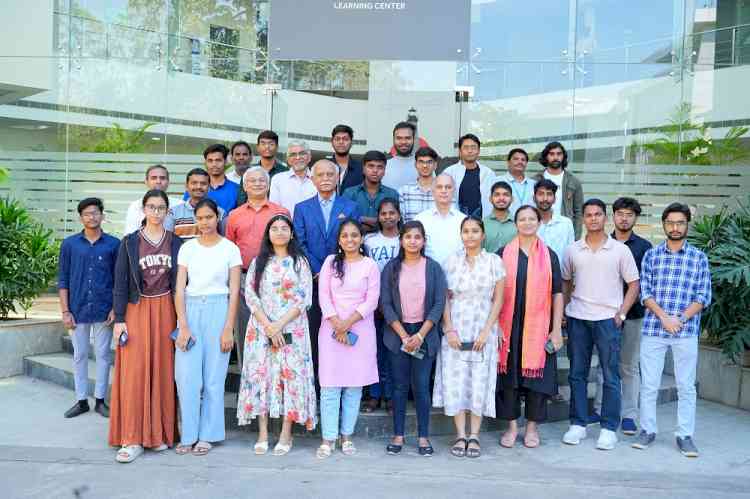Air pollution ranks 2nd most serious health risk in India
Medica Superspecialty Hospital, in collaboration with the CCDC and HELP, organized an awareness session on Air Pollution and its Health Effects

Mumbai/Kolkata, August 2, 2022: Medica Group of Hospitals, the largest private hospital chain in Eastern India, organized an awareness program on 'Air Pollution and Health Effects' at its flagship facility Medica Superspecialty Hospital in Kolkata in collaboration with Centre for Chronic Disease and Control (CCDC), Health and Environment Leadership Platform (HELP). The event was inaugurated by Dr. Alok Roy, Chairman, Medica Group of Hospitals in the presence of Dr. R.K Das, Consultant - Pulmonary Medicine, Medica Superspecialty Hospital, Dr. Poornima Prabhakaran, Deputy Director, Centre for Environmental Health Public Health Foundation of India, Senior Research Scientist, Centre for Chronic Disease Control and Masroor Azam, Research Associate, Centre for Chronic Disease Control.
The hour-long program took the attendees through the role doctors and healthcare professionals may play in communicating effectively and efficiently with their patients and communities. It also focused on the many ways that healthcare professionals may step up as educators and communicators for the health implications of air pollution and become advocates for clean and renewable energy—a crucial aspect in combating air pollution in India.
In the presence of other eminent speakers and attendees, Dr Alok Roy, who inaugurated the event, averred, “Air pollution is responsible for both direct and indirect health effects on individuals and society as a whole; we owe it to ourselves and future generations to work on its improvement; unfortunately, there isn't enough awareness about the same among all of us. This conference will bring awareness about the environment, particularly air pollution, to the forefront, and together we will be able to improve it.”
CCDC conducted and published research on "Understanding Knowledge, Attitude, and Practice of Health Practitioners Towards Health Effects of Air Pollution in India" in the year 2020. The study showed how despite air pollution becoming a major concern across the world, particularly in India, many clinicians are not fully prepared to assess and convey the health effects of air pollution to their patients.
Besides the research, Dr Poornima Prabhakaran, Deputy Director at the Centre for Environmental Health, Public Health Foundation of India, Senior Scientist at the Centre for Chronic Disease Control, stated, “Globally, air pollution is an overlooked cause of death. It is the fourth largest cause of death worldwide and the second most serious health problem in India. In polluted places, the air we breathe contains contaminated particle matter that enters the airways and predominantly affects respiratory health. However, tiny particles have an influence on other organ systems, including cardiovascular health and infant and child health when pregnant women are exposed to poor air quality. Furthermore, when healthcare practitioners get a better understanding of air pollution and its health repercussions, they will be able to develop preventative and promotional initiatives to safeguard the health of the people and communities they serve.” She further mentioned, “Because the health industry accounts for 5% of global greenhouse gas emissions, a well-sensitized and well-equipped health sector to deal with the rising burden of climate-sensitive illnesses or one that can move toward more ecologically sustainable health care services, is one path to establishing a climate-smart health sector. A climate resilient health facility must use sustainable building materials and standards, with a focus on optimizing natural lighting, cooling, and ventilation improving resource efficiency in energy, water, and food management, establishing efficient health care waste management systems, promoting sustainable transportation, encouraging demand aggregation, and purchasing goods such as medical equipment and pharmaceuticals manufactured in environmentally friendly factories. Finally, to build a climate-smart health system in India, both commercial and public health institutions should strive to provide accessible and adequate financial structures to support sustainable healthcare.”
Focusing on the Health Impacts of Air Pollution, Dr. R K Das, Consultant - Pulmonary Medicine, Medica Superspecialty Hospital, said, “Pollution and its effect on our lives and the planet is a very relevant topic in our today’s day and the world and maybe it will have relevance for many more years to come. As far as our health is concerned, pollution has got a direct detrimental effect on our entire being and perhaps the most damaged and affected organs are our lungs. According to studies, approximately 7 million people die each year because of exposure to fine particles in polluted air, which cause diseases such as chronic obstructive pulmonary disease, lung cancer, respiratory infections such as pneumonia, stroke, and heart disease. Apart from respiratory problems, it also causes growth retardation, growth delay, and a decrease in playtime with the weakening of bones decreased strength, and stamina, which extends to adulthood. As a result, air pollution is a major issue not only for the elderly but also for the young, and this is frequently overlooked. Air Pollutants of major public health concern include particulate matter, carbon monoxide, ozone, nitrogen dioxide, and sulphur dioxide. Both outdoor and indoor air pollution are hazardous to one's health. According to the World Air Quality Report 2022, India's PM 2.5 concentrations have returned to pre-Covid lockdown levels measured in 2019.”
Lastly, Masroor Azam, Research Associate, Centre for Chronic Disease Control, briefly introduced the Health and Environment Leadership Platform (HELP), as well as the Climate and Health Air Monitoring Project (CHAMP). While HELP is a network of hospitals, healthcare facilities, and health associations committed to reducing their environmental health burden and becoming climate-smart, CHAMP is an awareness-building program on air pollution and health effects. Talking about CHAMP, he further mentioned, “In this unique program, TV screens are installed in hospitals which showcase local air quality data, relevant advisory and information, education and communication content, aimed at increasing the awareness levels of healthcare professional, patients and community.”
Medica along with CCDC always believed in spreading awareness to keep humans and the planet healthy and foster a movement to create societies focused on well-being. The maintenance and improvement of health must always be at the center of concern about the environment and sustainable development. Yet health rarely receives high priority in environmental policies and development plans, even though the quality of the environment and the nature of development are major determinants of health. The panel discussion concluded after highlighting the priority area of concern in the current scenario and its effect and cure on human lives.


 City Air News
City Air News 












